Eventhough it was the onset of the COVID-19 pandemic that catalyzed my dream of transforming my hobby into a business, my story traces back to my childhood days. As for countless others, the pandemic inflicted significant changes upon my daily routines, leading me to confront an altered reality filled with a lot of of free time and social isolation. It was this time which brought me back to the art I had cherished during my younger years – knitting, sewing, and embroidery. In my youth, I had been very enthusiastic about these crafts, attending exhibitions and engaging in various activities that fostered my passion for art. Subsequently, this passion led me to enroll in the prestigious Iakob Nikoladze art school, where I acquired the expertise to become a professional designer.
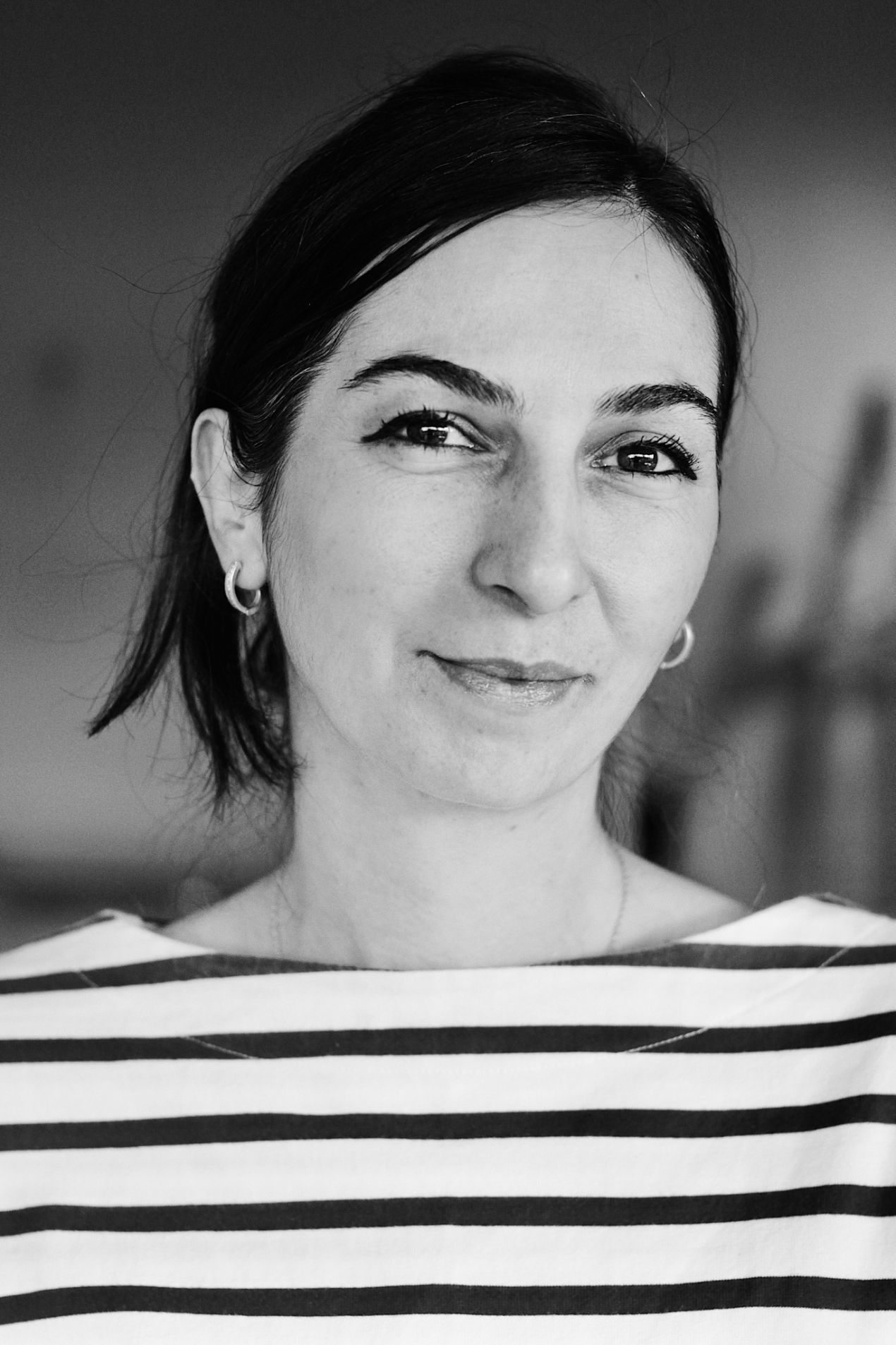
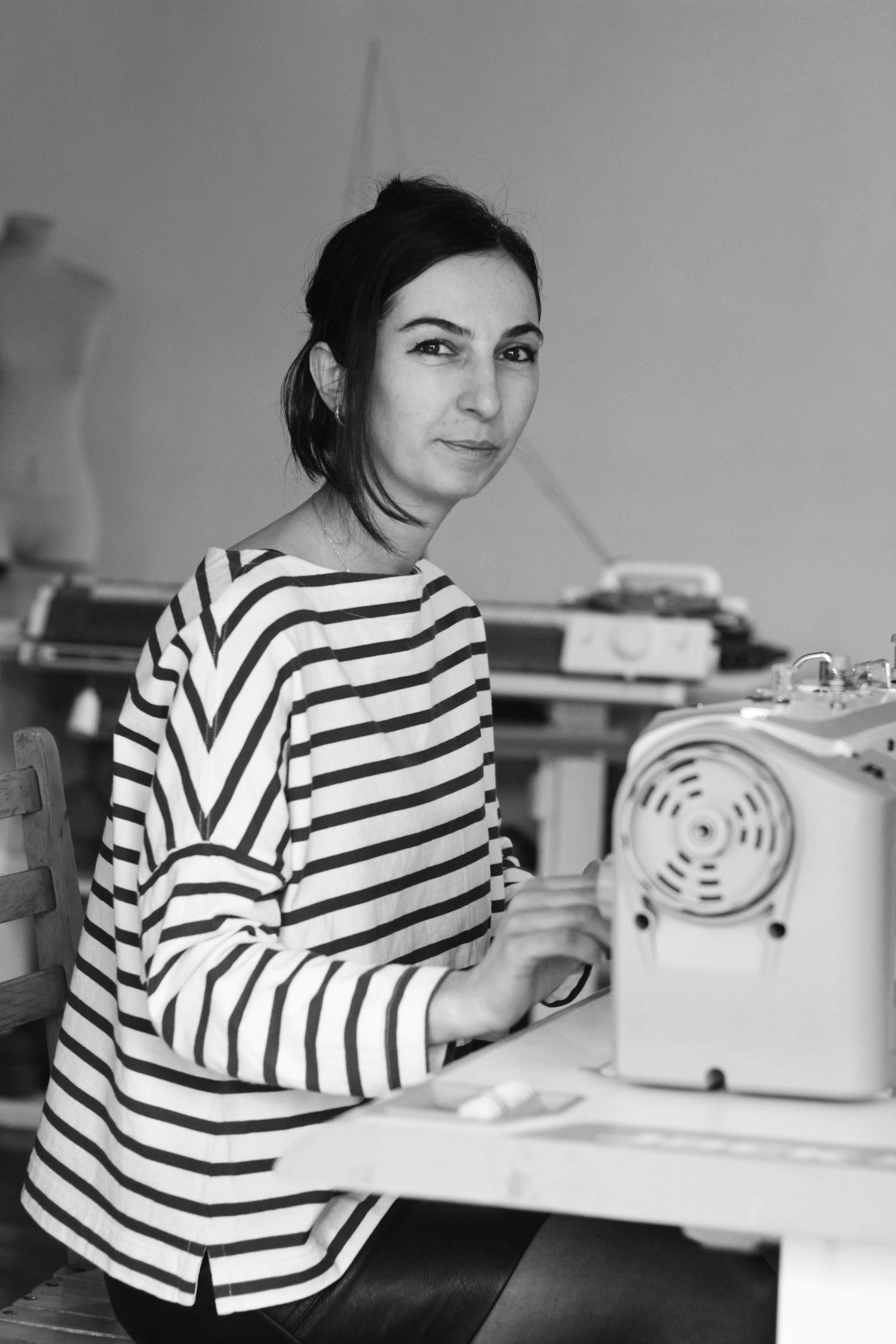
Throughout my years as a student, I kept engaging with needlework, fashioning an assortment of accessories and selling them at select boutiques in Tbilisi. As time passed, I began to focus less on my creative endeavors due to my lack of time. At the time, I was residing in Lagodekhi, my hometown, with my mother and my child. Yet, everything changed with the advent of the pandemic in Georgia and the ensuing lockdown measures.
The abrupt absence of work left me with an unanticipated realization – to revert to my former passion of working with thread and needle. In the beginning I started with crafting women’s accessories, particularly hair clips, and started selling them.,. However, my antiquated sewing machine could not hold up with the production amount of my growing business, and my financial resources were insufficient to procure a new one. It was then that my aunt kindly loaned me the necessary funds to purchase a new machine.
Very soon after, I learned that GIZ(Deutsche Gesellschaft für Internationale Zusammenarbeit(, commissioned by the German, Federal Ministry for Economic Cooperation and Development, was launching a grant competition in Lagodekhi. By this competition, the GIZ project, titled “Good Governance for Local Development in the South Caucasus,” aimed at promoting the economic empowerment of women in Kakheti, inter alia throughthe acquisition of production equipment to initiate or expand their enterprises.
This was an excellent opportunity for me, and thus, I formulated a comprehensive proposal to compete for the grant. The key requirement was to display a viable business concept and contribute at least 10% of the financial resources out of my own pocket. Fortunately, my submission was selected, and I received the announced support. With the aid of the grant, I procured a state-of-the-art sewing machine, a new knitting loom, and a steam iron, while at the same time establishing a dedicated knitting and sewing workshop in my place. Thanks to the generosity of the German government, I was able to undertake advertising campaigns, which proved pivotal in elevating my business’ reach and visibility.
The acquisition of new machinery has granted me a splendid opportunity to enhance the quality of my products while diversifying my models. Besides the invaluable financial backing, the project has granted me access to an array of training programs, which have enriched my knowledge and skills. The expertise gained through these training sessions has proven to be an indispensable asset to my work.
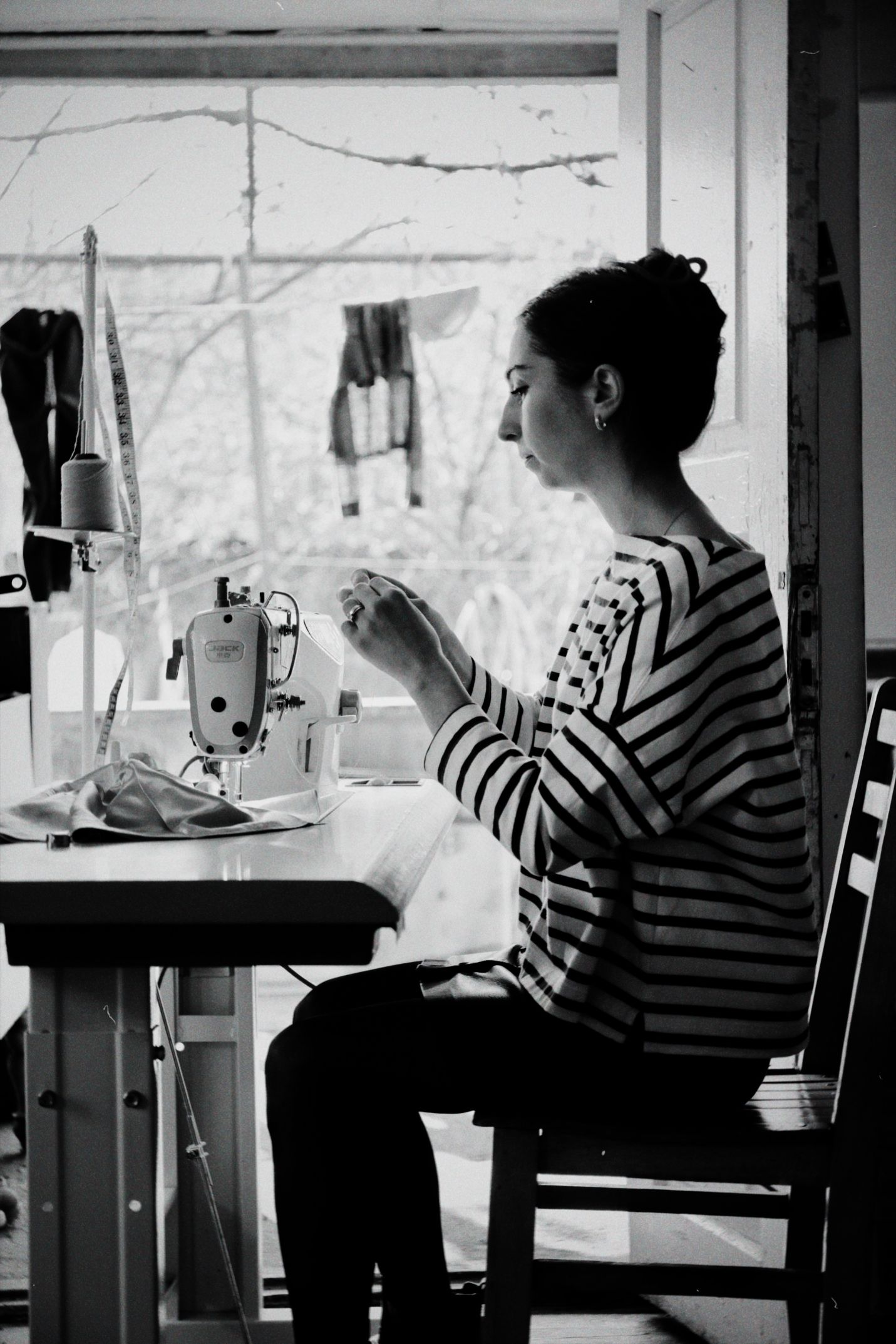

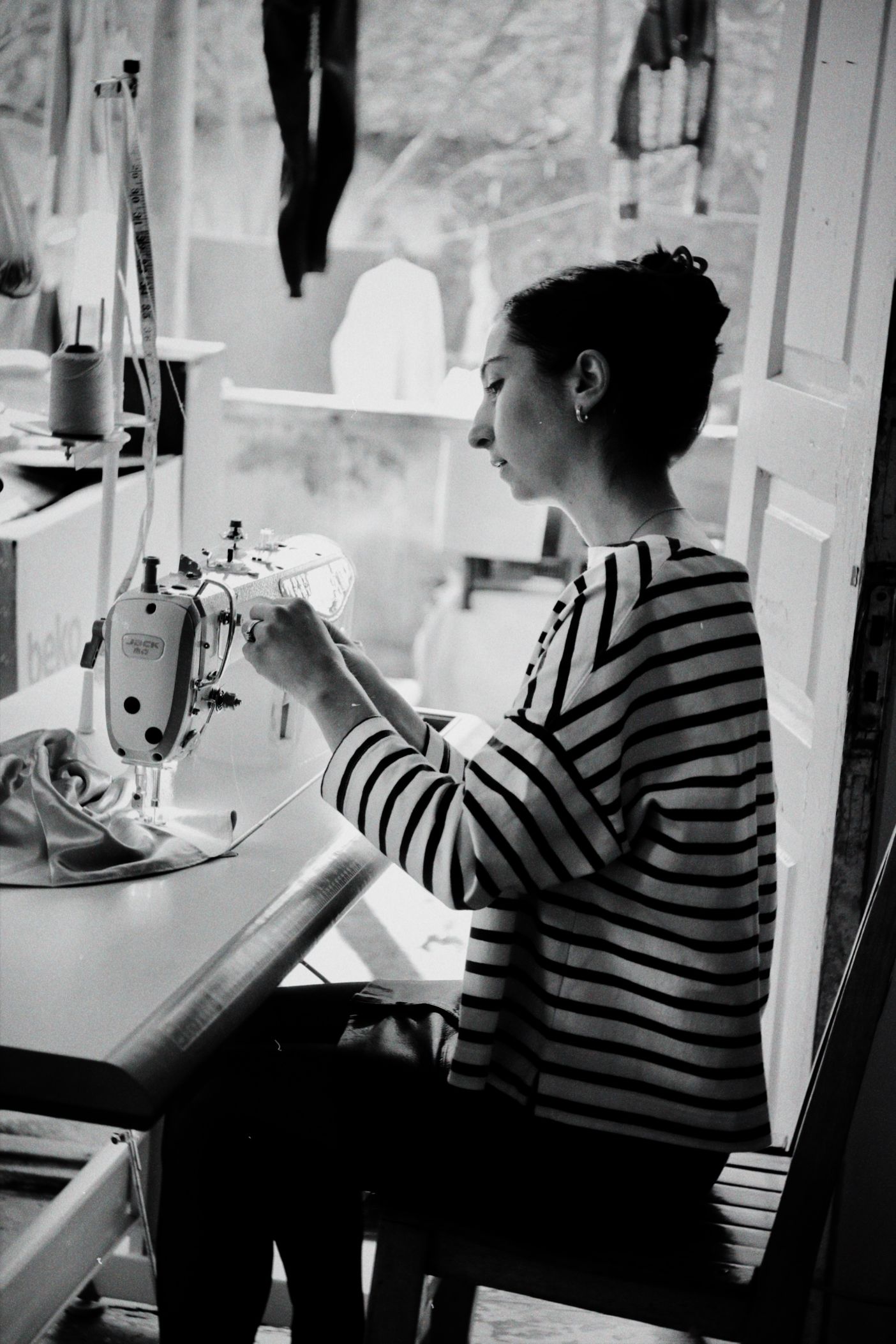
As of now, I predominantly operate within the workshop space independently, though occasionally, my mother, a self-taught seamstress, assists the business. I believe my proficiency in needlework emanates from her own talent and expertise. Furthermore, when required, my sister kindly supports me in transporting raw materials from Tbilisi to Lagodekhi.
My repertoire now comprises a broad range of products, including hair clips, turbans, scarves, hats, and hand-knitted balaclavas. My primary clients are local women, and I market my merchandise via various social media platforms. Lagodekhi is a relatively small town and my lifelong affinity for the art of knitting and sewing has rendered me a familiar figure within the community. Nonetheless, the advertisement campaign executed within the mentioned GIZ project has been an invaluable asset, significantly boosting my sales and reach. Besides social media, I also sell my creations through local stores, taking advantage of the benefits that come with living in a close-knit community where word of mouth can catalyze growth. As an example, in the winter, I received an overwhelming influx of orders for hats, so that I had to concentrate all my efforts on meeting these demands..
Despite having tasted the thrill of entrepreneurship during my student years, I consider this current business to be at the actual transformation of my passion into a business. Fully knowing that such endeavours usually come along with challenges, I took a chance and am pleased with the outcome thus far. Each of us is blessed with diverse talents, and it is on us to identify them and, with unwavering diligence, pursue them to fruition.

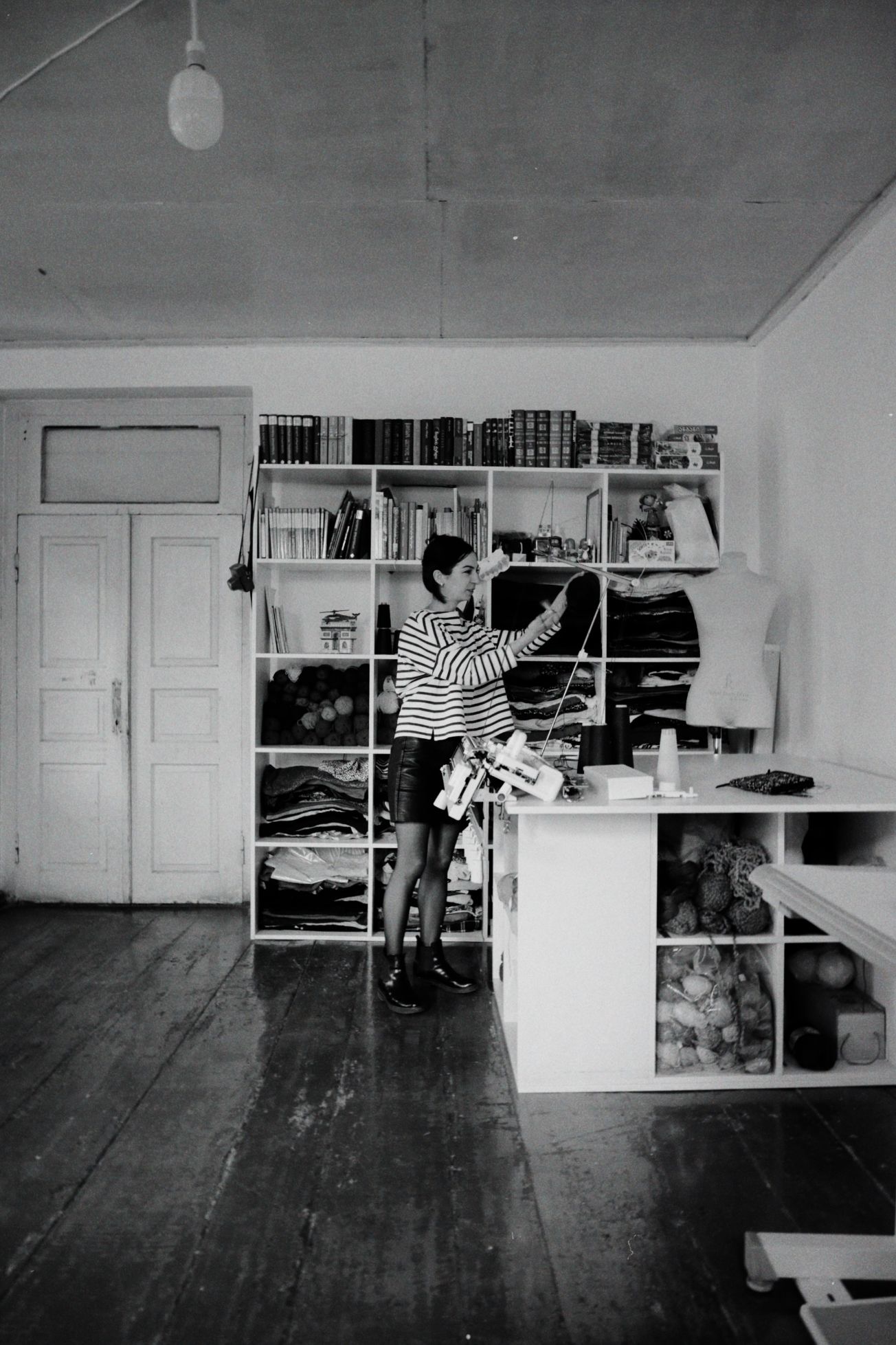
Achieving a childhood dream is a wonderful experienceI must acknowledge that, without the GIZ project’s aid, it would have been an exhausting endeavor. At present, in the comforts of my quiet sewing space, I sketch patterns, cut fabrics, and sew meticulously, often encountering further inspiration during the creative process. Some designs are tailored to the customer’s liking, adding an additional layer of intricacy to my work – all of which add to my satisfaction and gratitude about what I am allowed to do each day.
The driving force behind my work is a passionatelove for this kind of craft. Looking ahead, I plan to expand my business and think about branding my products.In the not-too-distant future, I may even venture into the arena of clothing design. Financial considerations will play, of course, a vital role in the realization of these plans. Yet, I remain resolute and determined to steadfastly pursue my aspirations, one step at a time.
The Article is prepared within the women empowerment campaign #ProudHer. The Campaign is implemented by the Deutsche Gesellschaft für Internationale Zusammenarbeit (GIZ) GmbH and funded by the European Union and German Federal Ministry for Economic Cooperation and Development (BMZ).
